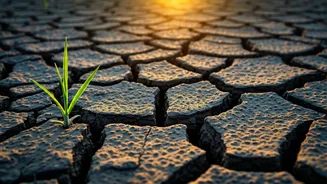Thirst, Not Hunger
Sometimes, the brain misinterprets thirst as hunger. This can lead to unnecessary snacking and feeling hungry soon after eating. Before reaching for a snack,
consider drinking a glass of water. Your body might simply be craving hydration, and water can often satisfy this need. This confusion between thirst and hunger underscores the importance of staying adequately hydrated throughout the day and listening to your body's subtle signals. Always prioritize water intake to rule out dehydration before considering food.
Urine Color Speaks
One of the most immediate indicators of dehydration is the color of your urine. Dark yellow or amber-colored urine signifies a need for increased fluid intake. The ideal state is to have light yellow or nearly clear urine. Monitoring urine color is a simple, effective method to keep tabs on your hydration level. Regularly observe the color of your urine to ensure it is light and indicates that you are well hydrated. Consistent dark urine indicates that your body is likely not receiving the fluids it requires to function effectively.
Heart Rate and Dizziness
When the body is dehydrated, the blood volume decreases, causing the heart to work harder. This can result in a faster pulse rate, feelings of dizziness, or lightheadedness, particularly when you stand up quickly. These symptoms highlight how dehydration impacts your cardiovascular system. Pay attention to how your body reacts when you stand up. If you feel lightheaded, it could be a sign you are dehydrated. Ensure you are drinking enough water, especially during physical activity or hot weather.
Headaches and Dehydration
Dehydration can lead to headaches or even migraines. This is because a lack of fluid around the brain can trigger these painful symptoms. If you regularly wake up with a dull headache, consider whether you're drinking enough water before bed. Adequate hydration is critical for the brain's proper function and can significantly reduce the frequency of headaches. Keeping your body hydrated is not only good for your physical health but also helps to improve your brain function.
Skin and Lip Health
Your skin depends on water to maintain its elasticity and plumpness. Dry or flaky skin, along with chapped lips, is a visible sign of dehydration. Staying hydrated can improve your skin's health and appearance, making it look and feel healthier. Moisturizers can help, but internal hydration through sufficient water intake is key. If your skin or lips show these signs, take it as an immediate signal to boost your water consumption. Regular water intake helps in getting healthy and glowing skin.
Constant Fatigue Lingers
Dehydration affects oxygen flow and slows down circulation, often leading to constant fatigue and sluggishness, even after a full night's sleep. Staying hydrated promotes energy levels naturally. Adequate water intake helps in boosting energy levels. If you find yourself consistently feeling tired, make sure you are drinking enough water. If feeling fatigue, ensure you are drinking sufficient water before looking at any other options.



















